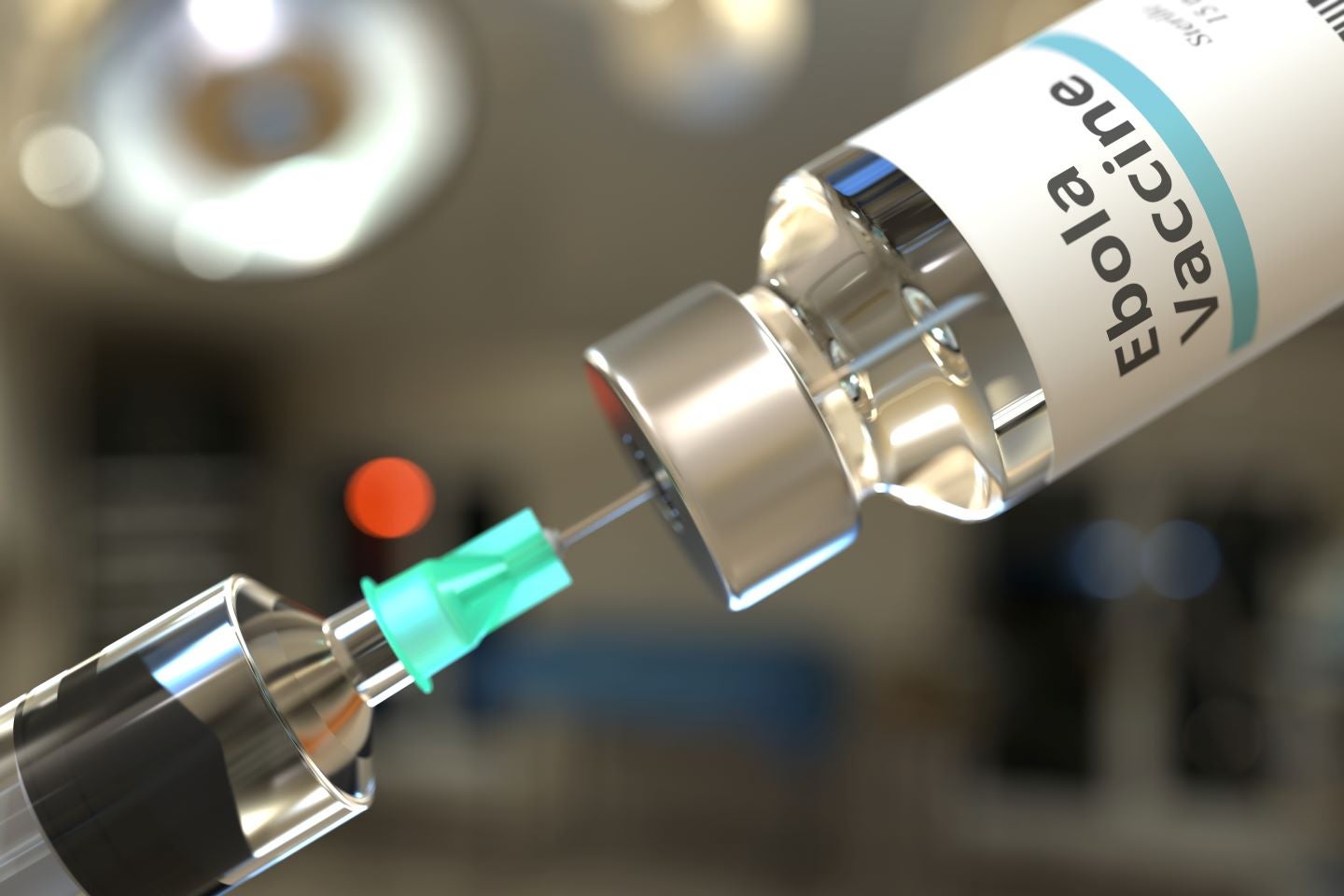A recent study carried out by researchers in Europe and the Democratic Republic of the Congo (DRC), and published in The Lancet Infectious Diseases, has revealed that the first real-world effectiveness estimates of the rVSV-ZEBOV vaccine against Ebola virus disease were approximately 84%. This retrospective, test-negative study, which analyzed 618 individuals during the 2018–2020 Ebola virus epidemic in the DRC, supports the prophylactic use of rVSV-ZEBOV for future outbreaks.
Ebola virus disease is caused by the species orthoebolavirus zairense, which is primarily found in sub-Saharan Africa. Ebola disease is transmitted through the bodily fluids of a sick or deceased person. Symptoms of Ebola disease can progress from fever, aches, and fatigue, to diarrhoea, vomiting, and unexplained bleeding. If left untreated, Ebola disease can cause death.
The recombinant vesicular stomatitis virus – Zaire Ebola virus (rVSV-ZEBOV) vaccine is marketed by MSD under the name Ervebo. rVSV-ZEBOV has been marketed in the US and EU since 2019, and in 2020 the DRC became one of the first African countries to register the vaccine, along with Burundi, Ghana, and Zambia. rVSV-ZEBOV will have the biggest impact in nations where the virus is endemic, such as the DRC.
The 2018–2020 Ebola virus epidemic in the DRC was the largest recorded outbreak in the country and the second-largest outbreak worldwide. Over 300,000 individuals were vaccinated during the outbreak under an Expanded Access programme, making it a prime opportunity to evaluate the effectiveness of the vaccine in a real-world setting, which has been lacking until now.
The retrospective study analyzed 309 individuals positive for Ebola virus disease and 309 individuals negative for Ebola virus disease. The disease-positive group contained 15 individuals who had been vaccinated ten days or more before the onset of symptoms, while the disease-negative group had 65 individuals of the same criteria. Vaccine effectiveness was estimated using odds ratio calculations, which determined that ten days or more after vaccination, rVSV-ZEBOV was 80% effective against Ebola virus in females, 86% in males, 80% in children under 15 years of age, 83% in adults 15 years of age or older, and overall, 84% effective. These calculations were repeated 500 times.
According to GlobalData, seven other competing drugs are marketed for Ebolavirus infections, including vaccines from Johnson & Johnson and Bavarian Nordic, and monoclonal antibodies from Regeneron and Ridgeback Biotherapeutics. A small number of vaccines are also in late-stage development. The Sabin Vaccine Institute currently has one vaccine candidate in Phase III and one in Phase II development.

US Tariffs are shifting - will you react or anticipate?
Don’t let policy changes catch you off guard. Stay proactive with real-time data and expert analysis.
By GlobalDataThe results of this retrospective study are promising for the widespread use of rVSV-ZEBOV during future outbreaks, particularly in nations where the virus is endemic and a vaccine is most needed. Further research focusing on rVSV-ZEBOV’s effectiveness against severe disease and its use as post-exposure prophylaxis would also be beneficial for populations most at risk during a future outbreak.






